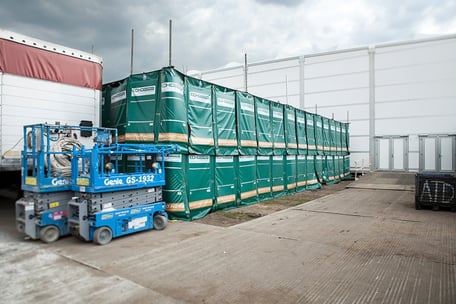
In Texas, regulation of disruptive or “unreasonable” noise falls under the disorderly conduct statute of the state penal code. This code classifies noise, including construction noise, as unreasonable if it exceeds 85 decibels, but only after the person creating the noise has been notified by local law enforcement that there has been a complaint.
This somewhat relaxed enforcement of noise control at the state level provides for more restrictive noise control measures by cities, in accordance with local needs.
Counties Have No Noise Control Authority
Under the Texas constitution, counties have no legal authority to enact noise ordinances beyond the requirements of the state penal code. This simplifies noise control efforts for construction projects in unincorporated areas, but contractors with projects within the boundaries of Texas cities must understand local municipal noise control requirements.
Different Cities—Differing Noise Control Laws
Construction noise control laws in various Texas cities may have common elements, but they regulate them differently. For example:
Hours of Operation
Generally, permitted noise associated with construction is limited to daytime hours, but the permitted hours of operation vary depending on the municipal jurisdiction. In San Antonio, daytime is defined as 6 AM to 10 PM but in Houston permitted construction hours are 7 AM to 8 PM while Dallas ends the daytime hours at 7 PM. Additionally, each jurisdiction regulates weekend, holiday and after hours work differently, requiring special permits for exceptions to normal permitted hours.
Decibel Levels
Allowable decibel levels for the noise of construction equipment and activities can vary greatly. El Paso limits construction noise measured from adjacent properties to 65 decibels while San Antonio has set a limit of 80 decibels and Houston uses the state limit of 85. On the other hand, the Dallas noise ordinance makes no reference to decibel levels and defines loud noise simply as noise or vibration that offends the “ordinary sensibilities of the inhabitants,” a broad standard by any measure.
Understand and Mitigate
The first step in managing compliance with Texas construction noise laws is to determine which jurisdiction's regulations apply and understand the noise mitigation requirements. The use of acoustic barriers to absorb, deflect, or isolate construction noise in compliance with local laws can keep a project on track and on time.
Portable noise control
Echo Barrier is an innovative temporary noise control system designed to mitigate noise in dynamic and sensitive work environments. Distribution available worldwide – get in touch with us:


